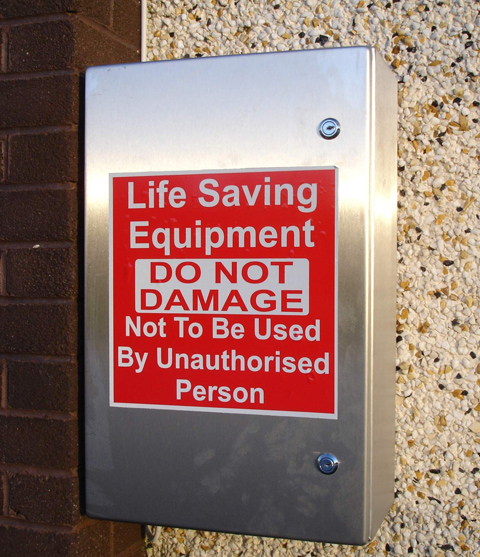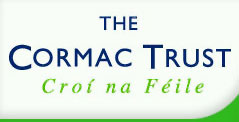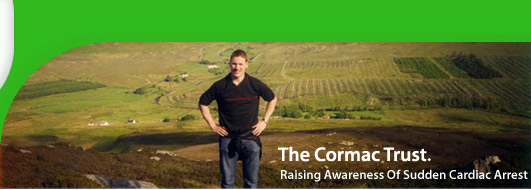Defibrillators
One of the aims of the Cormac Trust is to provide AEDs (Automated External Defibrillators) to communities within County Tyrone. Tyrone has a largely rural-based population and only one remaining acute hospital in Omagh. The vast majority of the approximately 160,000 people who live in Tyrone therefore live in places where it takes an ambulance more than 5 minutes to arrive. By providing towns and villages with AEDs and training lay people within these communities in their use, it is hoped that lives might be saved as victims of sudden cardiac arrest may be defibrillated more quickly.
The Philips HeartStart First Aid Defibrillator (supplied by Cardiac Services, Belfast) is a small, lightweight AED that is reliable and easy to use. Clear voice instructions guide the operator through the steps of CPR and defibrillation. In May 2005, the Cormac Trust embarked on a programme of providing communities in Tyrone with the HeartStart AED. A skilled hospital resuscitation officer is providing lay people in these communities with training in both resuscitation skills and use of the defibrillator.
The first training session took place in Cormac’s home town of Eglish on May 30 2005. Since then, over 300 lay people have been trained and 49 defibrillators provided to various communities in Tyrone. The process of training people and providing defibrillators is ongoing and it is the Trust’s intention that the programme will be rolled out to all communities in Tyrone within the next 12 months. Local sporting clubs have largely facilitated organisation of the scheme at a local level.

As of 31st May 2005, AEDs have been provided to the following towns and communities:
|
|
|
Despite the large numbers of people who die as a result of a cardiac arrest, it is still a relatively rare occurrence. With this in mind the training provided by the Cormac Trust programme includes a range of other simple, effective skills that the lay rescuer can utilise. These include recognition of the signs of a possible cardiac event, care of the unconscious patient, dealing with a choking patient and dealing with serious bleeding. The skills taught are simple, effective measures to reduce the risk of victim death. As all of the above situations have the potential to degenerate into a cardiac arrest if not handled promptly, a timely intervention by the lay person can help to prevent this from happening.
In addition to the training, there has been an offer of support from the Resuscitation Department in the Tyrone County Hospital (TCH) in Omagh. Any emergency situation will be stressful for the individual concerned; having an outlet for feedback and discussion of the situation will usually help to alleviate this stress. An important aspect of any training programme is structure and organisation of continuing training. As such, the Resuscitation Department of the TCH has indicated a willingness to provide further support and advice, to ensure this initiative provides ongoing benefit to the community for many years to come.
Download PDF of Resuscitation Council Notes/Guidelines(UK):
The legal status of those who attempt resuscitation.pdf



